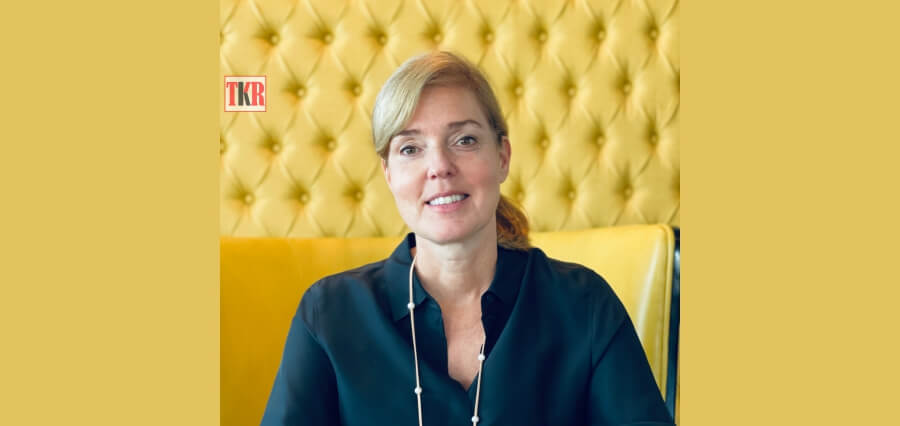Harnessing the Power of Collaboration
The Arab world possesses immense potential for the advancement and enrichment of education. The region experiences advancements in science, technology, innovation, and entrepreneurship, driving economic growth and societal progress.
In this article, I would like to share my views about Partnerships and Collaborations in education, Action Research, Accessible Education, High-Quality Curriculums, Gender Equality, and Community Involvement and in what way these specific areas can foster a transformative impact on education. By working together and embracing our collective responsibility, I hope that Art Village Nursery can make a meaningful difference in boosting education and contributing to the prosperity of the region.
Partnerships and collaborations between government, educational institutions, and private sectors are vital for a comprehensive boost in any educational system. Education can benefit from the private sector´s knowledge and innovative approaches. We believe that government inspections can provide guidance and regulatory oversight but also valuable support in professional development and training.
At Art Village Nursery, we believe that partnership and collaboration create opportunities for children to gain real-world experiences and connect their learning to practical applications. Collaboration fosters a comprehensive and effective education system but can furthermore drive innovation. This synergy fosters a culture of continuous improvement and ensures a holistic and well-informed approach to education governance.
Establishing Action Research and fostering partnerships with universities that promote a culture of inquiry will drive educational improvement. Research collaboration between early-year education and universities can greatly enhance the educational system by providing evidence-based insights, informed decision-making and improving teacher practices. At Art Village Nursery, we would like to engage in such collaborations that lead to continuous improvement in teaching practices and, ultimately, better educational outcomes for all children in early childhood education.
Emphasising the development of high-quality curriculums that aligns with global standards while also incorporating the cultural relevance of the UAE is crucial. Art Village Nursery follows the Swedish curriculum and the Reggio Emilia approach.
It fosters an inclusive and harmonious learning environment where all children feel valued and respected. When children see themselves and their culture represented, they are more likely to be actively involved in learning to gain a deeper understanding. The curriculum focuses on diverse cultures and brings children to develop empathy, respect and a sense of global citizenship.
The Swedish Curriculum and the Reggio Emilia approach at Art Village Nursery provide all children with life skills education that goes beyond academics. By teaching children critical thinking, problem-solving, communication, and leadership, we equip children with the tools they need to navigate challenges, make informed choices and become active participants in society. By implementing these strategies, we can empower both girls and boys to reach their full potential, contribute to the community and participate as equals in shaping the future.
Accessible education is essential for boosting an educational system by fostering inclusivity, supporting diverse learners, and ensuring access to educational opportunities for all. At Art Village Nursery, we ensure that all students, regardless of their abilities, have opportunities to participate and succeed.
By removing barriers in education, we can create a learning environment that caters to diverse needs. The Swedish Curriculum says that this fosters a sense of belonging and supports the social development of all. This leads to increased motivation, deeper understanding, engagement and lifelong learning. By prioritising accessible education, the system itself can create a more equitable and empowering environment for all learners.
Recognising the importance of gender equality in education, it is crucial to challenge and break down gender stereotypes that limit girls’ educational opportunities. We promote inclusive learning environments that value and celebrate the abilities and aspirations of all children regardless of gender to create a solid foundation and to overcome barriers for especially girls to succeed in their educational journey. In practice, this means pursuing girls to subjects and activities traditionally dominated by boys, creating safe and inclusive learning environments and addressing social norms that limit girls’ educational opportunities.
Community involvement in early years education is of great importance as it brings numerous opportunities to both children and the community itself. Involvement creates hands-on learning opportunities and real-life experiences beyond the classroom. Community involvement exposes young children to different cultures, traditions and perspectives and, from an early age, fosters an inclusive and harmonious society.
We believe in engaging parents and the community in the education process, and we experience that it also creates a supportive ecosystem for the learning community. Encouraging parental involvement, establishing community-led initiatives, and promoting educational partnerships will reinforce value and impact.
Furthermore, early years education in the Swedish Curriculum and the Reggio Emilia approach equips young individuals and families with knowledge and awareness about important global issues and climate change.
It promotes community involvement, gender equality, spending time outdoors, and promotes healthy and sustainable living. We have trust in the young generation, and we will inspire them to action and make collective efforts to address future challenges effectively.
In summary, early education is a catalyst for positive change. By prioritising and enhancing education for early learners, the most important learners in the whole school system, we can shape a future that is more prosperous, sustainable, and harmonious for all.
About the Author:
Susanne Linder, Principal at Art Village Nursery, has spent most of her 25-year-long career in Sweden as a principal for preschool, primary and secondary schools.
She has a degree from the Swedish national principal training programme from the University of Gothenburg, a degree in Bachelor of Education, two Degrees of Master of Social Science with each major in Educational work from Karlstads University and a degree in Master of Science with a major in Decision, Risk and Policy Analysis from Gävle University in Sweden.









